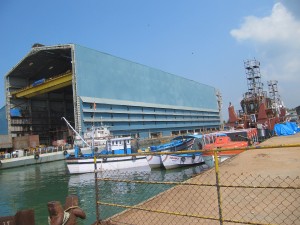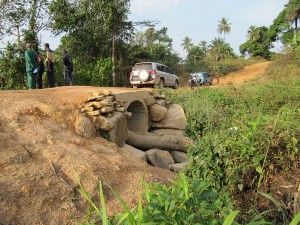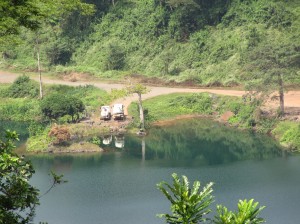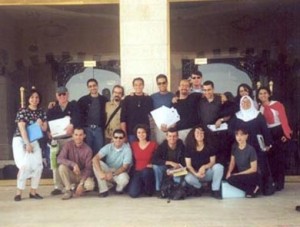Home » Ken Wright
Category Archives: Ken Wright
Ken Wright; Project Management & Programme Leadership
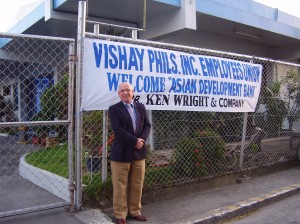 Ken Wright, Managing Partner of WCI has an established history of Project Management and Programme Leadership. After graduating for Trinity College Dublin Ken has worked for General Motors; UK Local Government Training Board (LGTB); Price Waterhouse (PWC) and Tegral Group of Companies then part of Cement Roadstone Holdings (CRH). It is now over 30 years since forming, initially Wright Consultancy (Ireland) and later TeamWorks to work with well-known private sector clients; such as; Apple, Alcan, Guinness, Philips, Microsoft, Westinghouse and Unilever etc before establishing WCI overseas services in 2003.
Ken Wright, Managing Partner of WCI has an established history of Project Management and Programme Leadership. After graduating for Trinity College Dublin Ken has worked for General Motors; UK Local Government Training Board (LGTB); Price Waterhouse (PWC) and Tegral Group of Companies then part of Cement Roadstone Holdings (CRH). It is now over 30 years since forming, initially Wright Consultancy (Ireland) and later TeamWorks to work with well-known private sector clients; such as; Apple, Alcan, Guinness, Philips, Microsoft, Westinghouse and Unilever etc before establishing WCI overseas services in 2003.
Overview of International Experiences
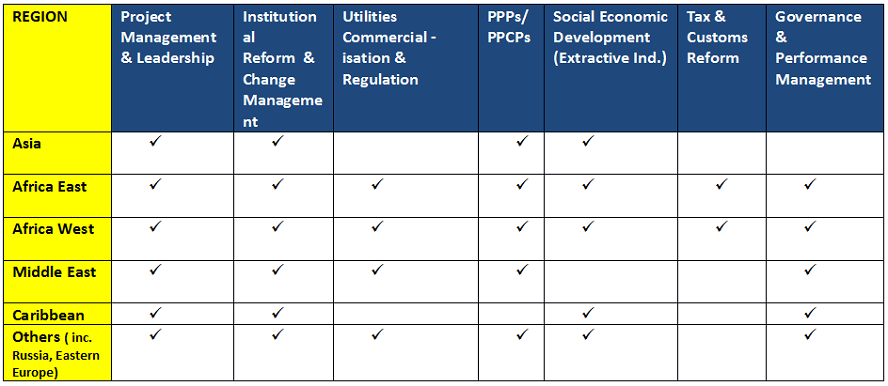 WCI work extensively with other global partners firms and a close network of specialist consultants tailored to specific project needs. WCI act from time to time as project managers and programme leaders especially on linking ad hoc technical inputs into one overall project strategy.
WCI work extensively with other global partners firms and a close network of specialist consultants tailored to specific project needs. WCI act from time to time as project managers and programme leaders especially on linking ad hoc technical inputs into one overall project strategy.
Our working partners:
WCI have worked as consultants to Adam Smith International for 10 years (1999 to 2010) in institutional reform and the Institute of Public Private Partnership (IP3), in Washington DC , since 2003 to date. Since then we have partnered with and supported many of the well-known International consultancy houses, for example;
- CPCS Transcom, Canada
- Crown Agents: UK
- Ecorys
- HTSPE & Coffee International; UK
- IBTCI; USA
- IPA Energy ; UK
- Land Equity Law; Australia
- Red Centre; UK
- Stone & Webster (The Shaw Group in 2000, then by Technip in 2012); USA
- TRC Global Management Solutions; USA
- UMS Group ( power sector) ; USA
For the Extractive Industries projects we are associates of PUMA Resources (Financial, Technical & Engineering) and InterSocial (land & resettlement). In addition, WCI has a strong, network of technical and consulting specialist who come together for specific projects, including legal, financial (tax & customs ); social & environmental, land, utilities and regulatory projects.
Contact us see how we can help you.
Back to the Home Page
Governance & Organisational Performance
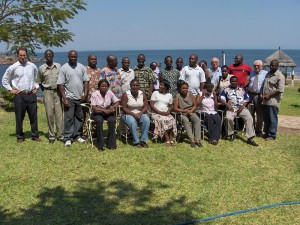 As part of general organisation work of developing new institutional arrangement and supporting organisational change, there is also a need to support good governance to enhance overall organisational performance. This has a direct impact on leadership development, effectiveness of the boardroom, clarification of roles, executive obligations, adoption of organisational process and procedures, communications and monitoring and evaluation of performance.
As part of general organisation work of developing new institutional arrangement and supporting organisational change, there is also a need to support good governance to enhance overall organisational performance. This has a direct impact on leadership development, effectiveness of the boardroom, clarification of roles, executive obligations, adoption of organisational process and procedures, communications and monitoring and evaluation of performance.
WCI have worked with both the private and public sector on performance, role clarification and leadership. This experience is invaluable when trying to address good governance in emerging economies, where transparency, decision making process and supporting communications are confused and often left to basic statutory obligations which in themselves maybe insufficient to deliver the level of performance expected and required. Very often, establishing new institutional arrangement from civil service to new parastatals (state agencies) are disappointing, failing to meet the performance levels required as they are unable to change the civil service culture they had hoped to leave behind.
WCI leadership and management performance work lends itself to establishing good overall governance. Building on our work, in Africa, in particular we are familiar with the King II and King III reports initiated by the institute of Director in South Africa and the work of World Bank Governance Tool-kit. WCI have supported governance work in Jordan, Guyana, Philippines, South Africa, Mozambique, Zambia, Tanzania, Kenya, Rwanda, Nigeria, Ghana, Senegal, and Sierra Leone.
Contact us to see how we can help you
Back to Home Page
Tax & Customs Reform
WCI has, over the last 10 years, been involved in several tax and customs reform projects. This is a critical area for development agencies to invest in order to ensure that the emerging economics ‘tax gap’ can be closed for long-term self-sustainability. WCI has been closely linked with three Africa tax authorities: Rwanda, Burundi and Sierra Leone, all at different stages in their development from start-up in Burundi, mature in Rwanda to the current Modernisation Programme in Sierra Leone where we have worked with Crown Agents and directly for DFID as the programme Team Leader.
WCI with its background in Sustainable Social Economic Development with extractive industries such as: oil, gas, mining, forestry, large scale agriculture, PPP, concessions and fisheries, has identified this sector as one due for major improvements in tax policies. This would help emerging economies to make an investment in human capital & infrastructure, ensuring that there is a long term legacy from exploitation of resources. WCI will use its worldwide network of tax and economic specialists and its links to extractive industries in resource rich counties in emerging markets to support tax and customs and trade facilitation reform.
Contact us to see how we can help you.
Back to the Home Page
Sustainable Social Economic Development
WCI has practised sustainable social economic development with the governments and extractive industries of several resource rich countries such as: Guyana, Senegal, Guinea, Ghana, Sierra Leone and Liberia. In 2011 to 2012, in Liberia, WCI lead a Ministry of Lands, Mines & Energy (MoLME) for the World Bank EI-TAF grant to support their Sustainable Social Economic programme by adopting the Ministry of Planning & Economic Affairs (MoPEA) ‘accelerated growth corridors strategies’.
The World Bank and others have long recognised the potential of utilising the benefits of the direct support extractive industries give to an area; such as new infrastructure for new economic growth corridors for ‘up and down stream’ economic development. The overall concept of extractive industries and their Corporate Social Responsibility (CSR) is often seen as a panacea for social economic development. This is possibly an outdated, narrowly focused, reactive and often unsustainable policy unless there also exists long-term social economic planning. Governments and Public Private Partnership (PPP) or Public Private and Community Partnership (PPCP) must manage each other’s often unrealistic expectations of the private sector to address government mining community services shortfalls. The benefits of extractive industries infrastructure do not happen without better partnership, shared responsibilities, regulatory monitoring & compliance oversight.
In emerging economy’s, resource wealth is known as the ‘curse of plenty’, questioning why resource wealth often leads, paradoxically, to economic stagnation and instability known as ‘Dutch disease’. This calls for strong PPP’s or more likely PPCP’s with affected mining communities in order to support the weakness of governmental project management in large infrastructure projects. Governments need to divert mineral royalties into infrastructure projects, building human capital for the future and alternative economic development rather than address it in the current ‘tax gap’ (see our section on Tax & Customs Reform).
WCI is well placed to support Sustainable Social Economic Development using its network of partners and specialists.
Contact us to see how we can help you.
Back to Home Page
Utility Commercialisation & Regulation
The main focus of WCI is working with parastatals (state agencies) in relation to the provision of sustainable services for: water, power, transport and telecommunications through the commercialisation strategies for change and regulation. The emerging markets initial rush to privatise state parastatals has now given way to a more supported commercialisation of state enterprises, where a managed approach can be undertaken to potential job loss and opportunities can be opened for job creation as well as profitability and also to attract investment through Public Private Partnerships (PPPs).
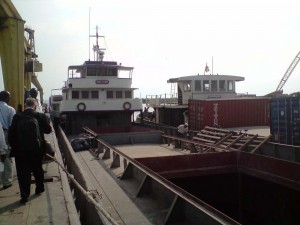 Our utility commercialisation experiences exist across both western and emerging markets, such as: Montenegro, Jordan, South Africa, Mozambique, Malawi, Swaziland, Kenya, Zambia, Ghana and Nigeria. In many of these cases, state utility regulators were also established.
Our utility commercialisation experiences exist across both western and emerging markets, such as: Montenegro, Jordan, South Africa, Mozambique, Malawi, Swaziland, Kenya, Zambia, Ghana and Nigeria. In many of these cases, state utility regulators were also established.
Contact us to see how we can help you
Back to Home Page
Institutional Reform & Change Management
‘’When the winds of change blow, some build wall and other windmills’’ (proverb anno)
WCI, with Wright Consultancy in Ireland, has a history of over 30 years in delivering change processes. The hard lessons we have learned internationally in emerging economies are that traditional approaches to change management process often do not work. There is a need for more direct and forthright communication, clearer implementation and communication plans which are tempered by the individual delivering the messages of change, supported by a team sensitive to local issues and cultural differences. WCI pride themselves in listening, understanding and being realistic of the outcomes.
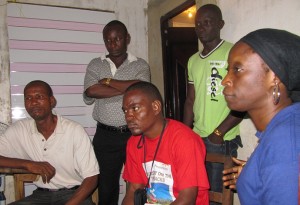
Change management experiences have been supported in the Caribbean, India, Jordon, Palestine as well as East, West and Southern Africa, notably: Nigeria, Sierra Leone, Ghana, Tanzania (EAC), Kenya, Rwanda, Burundi, Mozambique and South Africa.
Contact us to see how we can help you.
Back to the Home Page.
Public Private Partnership (PPPs) & PPCPs
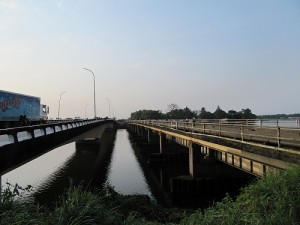 WCI has been involved in PPPs since 2003, mainly with the Institute of Public Private Partnership (IP3), on capacity building in many countries in Middle East & Africa. In addition WCI supported IP3’s consultancy in Jordan, Botswana, Zambia, Kenya, Mozambique and Nigeria. Since then WCI has developed PPP and is now looking for the mining sector infrastructure projects to develop the concept of Public Private Community Partnership (PPCP).
WCI has been involved in PPPs since 2003, mainly with the Institute of Public Private Partnership (IP3), on capacity building in many countries in Middle East & Africa. In addition WCI supported IP3’s consultancy in Jordan, Botswana, Zambia, Kenya, Mozambique and Nigeria. Since then WCI has developed PPP and is now looking for the mining sector infrastructure projects to develop the concept of Public Private Community Partnership (PPCP).  Ken Wright is pioneering Corporate Social Responsibility (CSR) and PPCP to support community based projects in the recently proposed project for Karnataka State, India, with Mott MacDonald are part of a sustainable costal protection strategy. PPCP, we believe, will have wide implication for sustainable social economic development and the extractive industries (see our section on sustainable social economic development). WCI have been involved in the negotiation of PPP/concession agreements between potential partners and governments. WCI supports PPP/concession capacity building on negotiation techniques to support better partnership arrangements between the private sector and the regulatory sector.
Ken Wright is pioneering Corporate Social Responsibility (CSR) and PPCP to support community based projects in the recently proposed project for Karnataka State, India, with Mott MacDonald are part of a sustainable costal protection strategy. PPCP, we believe, will have wide implication for sustainable social economic development and the extractive industries (see our section on sustainable social economic development). WCI have been involved in the negotiation of PPP/concession agreements between potential partners and governments. WCI supports PPP/concession capacity building on negotiation techniques to support better partnership arrangements between the private sector and the regulatory sector.
Contact us to see how we can help you
Back to Home Page
